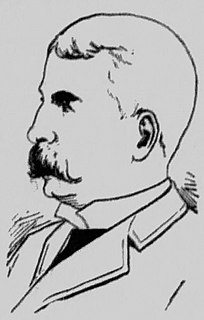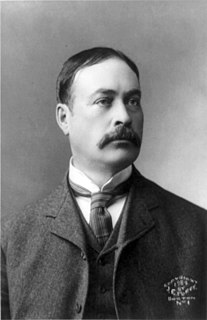A Quote by A. C. Bradley
The suffering and calamity are, moreover, exceptional. They befall a conspicuous person. They are themselves of some striking kind. They are also, as a rule, unexpected, and contrasted with previous happiness or glory. A tale, for example, of a man slowly worn to death by disease, poverty, little cares, sordid vices, petty persecutions, however piteous or dreadful it might be, would not be tragic in the Shakespearean sense.
Related Quotes
Such exceptional suffering and calamity, then, affecting the hero, and-we must now add-generally extending far and wide beyond him, so as to make the whole scene a scene of woe, are an essential ingredient in tragedy and a chief source of the tragic emotions, and especially of pity. But the proportions of this ingredient, and the direction taken by tragic pity, will naturally vary greatly.
Supposing you eliminated suffering, what a dreadful place the world would be! I would almost rather eliminate happiness. The world would be the most ghastly place because everything that corrects the tendency of this unspeakable little creature, man, to feel over-important and over-pleased with himself would disappear. He's bad enough now, but he would be absolutely intolerable if he never suffered.
We hold death, poverty, and grief for our principal enemies; but this death, which some repute the most dreadful of all dreadful things, who does not know that others call it the only secure harbor from the storm and tempests of life, the sovereign good of nature, the sole support of liberty, and the common and sudden remedy of all evils?
The artist usually sets out -- or used to -- to point a moral and adorn a tale. The tale, however, points the other way, as a rule. Two blankly opposing morals, the artist's and the tale's. Never trust the artist. Trust the tale. The proper functions of a critic is to save the tale from the artist who created it.
What's most striking is that the world as a whole has made remarkable progress against hunger, poverty and disease. I believe in God, and I see that hundreds of millions of people have escaped from poverty in places like Ethiopia, Bangladesh, Brazil and Britain. That's why, for me, it makes sense that this is God moving in our history.
It sometimes happened that you might be familiar with a man for several years thinking he was a wild animal, and you would regard him with contempt. And then suddenly a moment would arrive when some uncontrollable impulse would lay his soul bare, and you would behold in it such riches, such sensitivity and warmth, such a vivid awareness of its own suffering and the suffering of others, that the scales would fall from your eyes and at first you would hardly be able to believe what you had seen and heard. The reverse also happens.
When a man is in God's grace and free from mortal sin, then everything that he does, so long as there is no sin in it, gives God glory and what does not give him glory has some, however little, sin in it. It is not only prayer that gives God glory but work. Smiting on an anvil, sawing a beam, whitewashing a wall, driving horses, sweeping, scouring, everything gives God some glory if being in his grace you do it as your duty.
There is no single best kind of death. A good death is one that is "appropriate" for that person. It is a death in which the hand of the way of dying slips easily into the glove of the act itself. It is in character, ego-syntonic. It, the death, fits the person. It is a death that one might choose if it were realistically possible for one to choose one's own death.





























